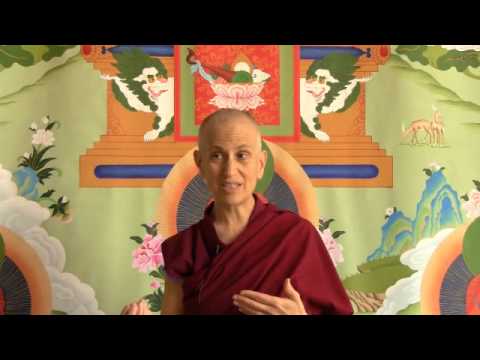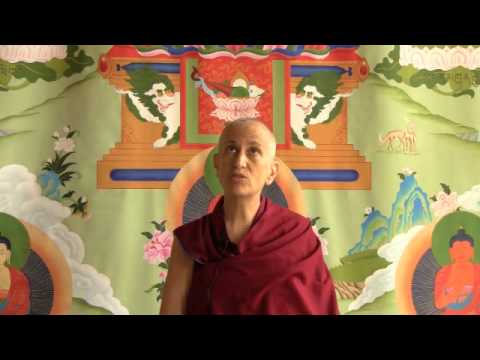Ethics and precepts
Stages of the Path #119: The Fourth Noble Truth
Part of a series of Bodhisattva's Breakfast Corner talks on the Stages of the Path (or Lamrim) as described in the Guru Puja text by Panchen Lama I Lobsang Chokyi Gyaltsen.
We’ve been talking about the higher training in ethical conduct, and this principally revolves around taking and keeping precepts. The reason that we take and keep precepts is because we’ve done a lot of thinking within ourselves and looked at what kinds of actions create the cause of happiness and what kinds of actions create the cause of suffering. We have that kind of clarity in our mind. We also see how uncontrolled our body and speech are so we want to do something about it because we see if we just let our mind go, and if we let our body and speech follow after it, who knows where in the world we’re going to wind up.
We take the precepts voluntarily. Nobody forces us or coerces us into doing it. We can return them any time we want to and there’s no problem with that. But we take them in order to help us be more mindful and to increase the introspective alertness that I’ve been talking about the last few days. In that way it helps us stay clearer on the path that we want to go on.
I know for some people in the west the whole idea of taking precepts is quite scary, because we have this idea (I think very often from the Catholic church) that they’re not precepts. In other words, they’re not trainings. They are VOWS that are inflexible, and if you break them you’re going to hell. And they’re vows imposed from the outside onto you. Not precepts of training, guidelines of training, that you yourself have voluntarily undertaken because you see their benefit.
This kind of difference, which we often are not aware of in our own mind, because we grew up in a certain culture with a certain framework, and so we come to Buddhist precepts with that framework projected on top, and then very often have a lot of discomfort and issues, feeling like, “Oh who’s telling me to keep this, and I don’t want to do this, and blah blah…” But that all is something that I think we’re projecting onto the Buddha’s precepts that isn’t there. So it’s very important to see this. And as in so many other areas of our Dharma training, we see that what we grew up with influences our expectations and what we’re seeing now, and that often we import stuff from our culture into Buddhism that Buddhism doesn’t have from its side. This is one very good case of it.
It’s good to remember that precepts are voluntarily taken. They’re trainings to take for our own benefit, and they’re things to practice. When we mess up there are results, but it’s not like there’s some external person judging us because of our mistakes. Rather, we look at our mistakes and then we figure out what was going on in our mind that we made them, and then we have that knowledge and we begin to correct it. That’s something that becomes very beneficial for us and helps us in the long run.
Another thing is we take precepts because we can’t keep them perfectly. If we could keep them perfectly we wouldn’t need them. That again emphasizes that they’re guidelines for training. They’re not kind of things that somebody else uses to judge you by. Very important.
Venerable Thubten Chodron
Venerable Chodron emphasizes the practical application of Buddha’s teachings in our daily lives and is especially skilled at explaining them in ways easily understood and practiced by Westerners. She is well known for her warm, humorous, and lucid teachings. She was ordained as a Buddhist nun in 1977 by Kyabje Ling Rinpoche in Dharamsala, India, and in 1986 she received bhikshuni (full) ordination in Taiwan. Read her full bio.


